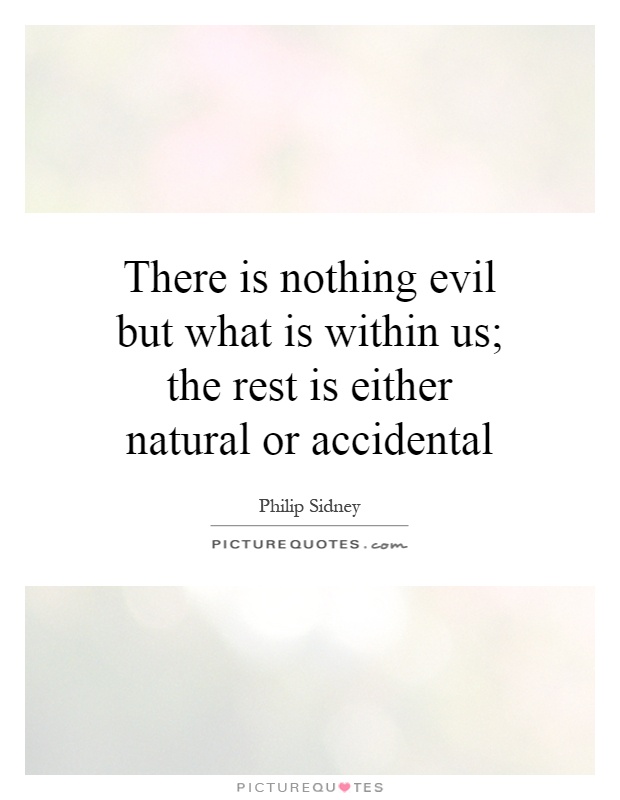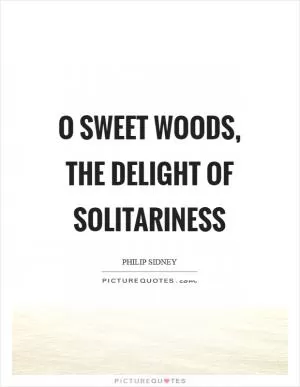There is nothing evil but what is within us; the rest is either natural or accidental

There is nothing evil but what is within us; the rest is either natural or accidental
Sir Philip Sidney was a prominent figure in the Elizabethan era, known for his contributions to literature, politics, and warfare. His quote, "There is nothing evil but what is within us; the rest is either natural or accidental," reflects his belief in the inherent goodness of human nature and the idea that evil stems from within rather than external forces.Sidney's quote can be interpreted in various ways, but at its core, it suggests that evil is a product of human actions and intentions rather than external circumstances. In other words, evil is not something that exists independently in the world but is instead a result of our own choices and behaviors. This idea aligns with Sidney's humanist beliefs, which emphasized the importance of individual agency and responsibility.
Furthermore, Sidney's quote implies that evil is not an inherent quality of human nature but rather a deviation from our natural state. According to this perspective, humans are inherently good, and it is only through our actions and decisions that we can become corrupted or evil. This idea is consistent with Sidney's optimistic view of humanity and his belief in the potential for moral growth and improvement.
Additionally, Sidney's quote suggests that some aspects of evil are beyond our control and are simply a part of the natural order of the world. For example, natural disasters, diseases, and accidents are not the result of human malice but are instead part of the random and unpredictable nature of existence. By distinguishing between the evil that comes from within us and the natural or accidental evils that occur in the world, Sidney highlights the complexity of moral responsibility and the need to differentiate between intentional wrongdoing and unavoidable harm.












 Friendship Quotes
Friendship Quotes Love Quotes
Love Quotes Life Quotes
Life Quotes Funny Quotes
Funny Quotes Motivational Quotes
Motivational Quotes Inspirational Quotes
Inspirational Quotes